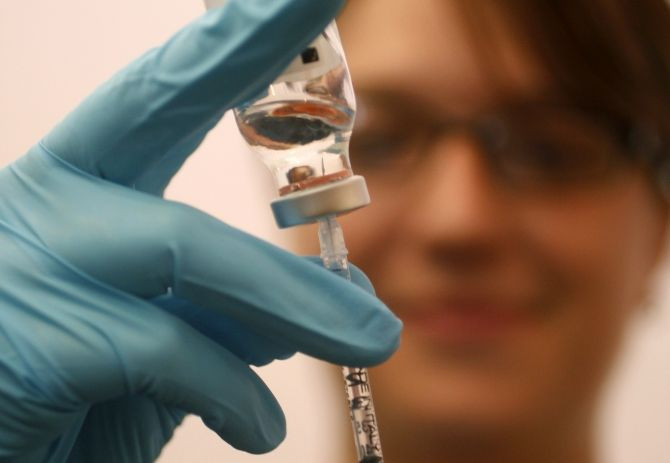Colon Cancer Vaccine Shows Promise

While many hope for the cure for cancer in the future, researchers at the University of Pittsburgh hope to do one better. They have conducted the first human trial of a vaccine that, they hope, would prevent colon cancer. The results are published in a recent issue of the journal Cancer Prevention Research.
Colon cancer typically begins with the formation of a polyp in the intestinal lining. In most cases, polyps are benign, though abnormal, and are always removed. In select cases, polyps that could become cancerous, called adenomas, grow. Though the adenomas are removed, the patients are still considered at risk for colon cancer; in fact, 30 to 40 percent of individuals with adenomas later go on to develop colon cancer.
The vaccine targets the cell protein MUC1, which is produced in excess and abnormally by the body in the presence of cancer and advanced adenomas. The protein also appears abnormally in patients with breast, lung, pancreatic and prostate cancer, and researchers hope to test the vaccine on patients with premalignant lesions of those cancers.
The vaccine was tested on 39 patients aged between 40 and 70. None had cancer, but all had a history of advanced adenomas. They received an initial shot of the vaccine, followed by subsequent shots two and 10 weeks later. A booster injection was provided a year after the first shot in order to confirm that the vaccine was durable. Researchers took blood tests to measure the participants' immune response when they received their follow-up vaccination shots, as well as at the 12-week, 28-week and one-year mark.
The researchers found that the vaccine provoked a strong immune response in 17, or 44 percent, of the participants. While that percentage may seem low, researchers are not alarmed. They believe that the other 22 patients had a high number of cells that suppressed the body's immune response to cancer, suggesting that they should administer the vaccine earlier.
"This prophylactic colon cancer vaccine boosts the patient's natural immune surveillance, which potentially could lead to the elimination of premalignant lesions before their progression to cancer," Olivera Finn, one of the developers of the vaccine, said in a statement. "This might spare patients the risk and inconvenience of repeated invasive surveillance tests, such as colonoscopy, that currently are used to spot and remove precancerous polyps."
Colorectal cancer is the third-deadliest cancer for Americans when the genders are calculated separately, and the second-deadliest when the genders are calculated together. The American Cancer Society says that there were 103,170 new cases of colon cancer in 2012.
Published by Medicaldaily.com



























